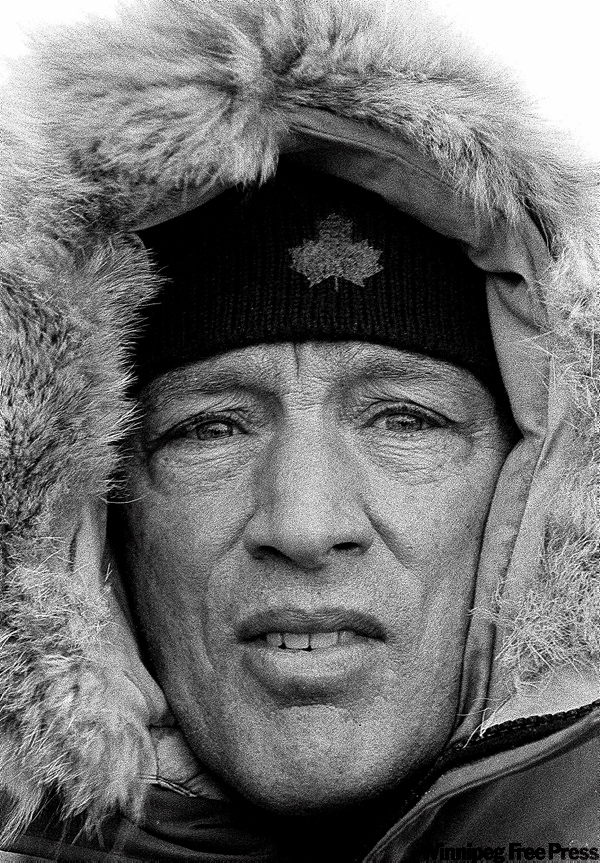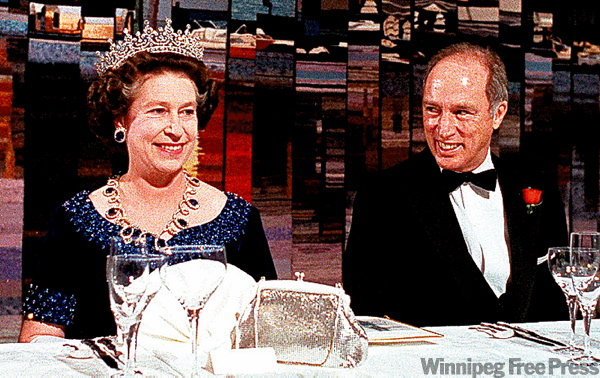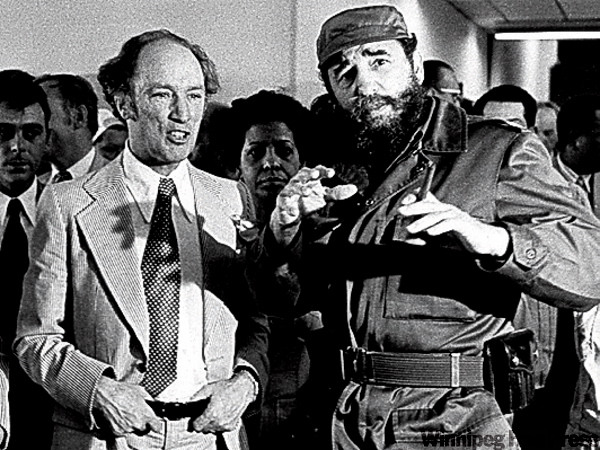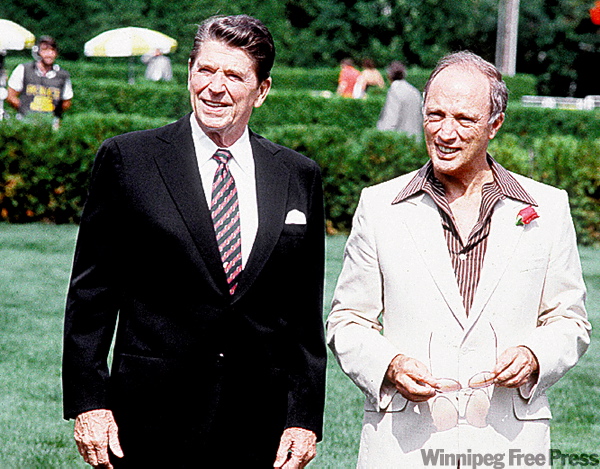We brood on him
Still vapour trails from Trudeau's comet across our heavens
Advertisement
Read this article for free:
or
Already have an account? Log in here »
To continue reading, please subscribe:
Monthly Digital Subscription
$0 for the first 4 weeks*
- Enjoy unlimited reading on winnipegfreepress.com
- Read the E-Edition, our digital replica newspaper
- Access News Break, our award-winning app
- Play interactive puzzles
*No charge for 4 weeks then price increases to the regular rate of $19.00 plus GST every four weeks. Offer available to new and qualified returning subscribers only. Cancel any time.
Monthly Digital Subscription
$4.75/week*
- Enjoy unlimited reading on winnipegfreepress.com
- Read the E-Edition, our digital replica newspaper
- Access News Break, our award-winning app
- Play interactive puzzles
*Billed as $19 plus GST every four weeks. Cancel any time.
To continue reading, please subscribe:
Add Free Press access to your Brandon Sun subscription for only an additional
$1 for the first 4 weeks*
*Your next subscription payment will increase by $1.00 and you will be charged $16.99 plus GST for four weeks. After four weeks, your payment will increase to $23.99 plus GST every four weeks.
Read unlimited articles for free today:
or
Already have an account? Log in here »
Hey there, time traveller!
This article was published 31/10/2009 (5850 days ago), so information in it may no longer be current.
Just Watch Me
The Life of Pierre Elliott Trudeau, 1968-2000
By John English

Knopf Canada, 400 pages, $40
Trudeau’s back! Of course, with his mercurial personality and controversial politics, he never really went away.
We brood on him always. This biography completes University of Waterloo academic John English’s two-volume project using new sources drawn from Trudeau’s personal papers, recently available government documents and sundry memoirs.
If the first volume, Citizen of the World (2007), was more surprising and sensational, this one is much more predictable. But throughout there is English’s thorough methods and his easygoing, clear style.
And, of course, he has as his subject about as fascinating a person as politics in this country has produced. English clearly admires Trudeau but his work contains more than a little criticism of him too.
English does not challenge the received opinion of the general shape of Trudeau’s life as prime minister. Between 1968 and 1972 his government was full of airy theories and unsuccessful innovations.

Yet in the middle of it Trudeau cut an astonishingly strong figure as the slayer of the FLQ in the October crisis of 1970. "Just watch me," the phrase English uses for this title, was Trudeau’s famous response to the reporter who asked him how far he’d go to maintain public order.
Here English does not add much to what has been well understood for some time, which is that Trudeau took seriously what he saw as a challenge to the authority of the state.
Especially he was concerned about the letter signed by more than a dozen opinion leaders in Quebec who wanted to reinforce the provincial government.
Trudeau was convinced that the state had a supreme responsibility to eradicate terrorism and to overcome challenges to democratically elected governments.
Almost defeated in 1972 and under the influence of operatives like Keith Davey, Trudeau morphed into a canny politician. He ditched systems theories and, in his subsequent three administrations, pursued a strongly left-wing agenda emphasizing the welfare state and government management of the economy.

Trudeau did not accept supply-side neo-liberalism and the notion of unregulated markets. It may not have been the reason for his failures but overall his economic policy was the least successful part of his time in office.
English is especially good at describing the complicated manoeuvres around the patriation of the Constitution and the entrenching of a Charter of Rights in 1982.
This was surely Trudeau’s greatest success because at various times he had the whole of the political and legal establishment of Canada and Britain ranged against him. Yet he prevailed.
This provides English with his one substantial criticism of Trudeau. Trudeau had won over the Quebec population in the referendum debate of 1980 with the promise of constitutional renewal.
But he surely was self-serving in thinking that what Quebecers wanted was what he gave them in 1982. And having outfoxed and outwitted René Lévesque into giving up Quebec’s right to a constitutional veto and then isolating him in the famous night-time meeting of Jean Chrétien, Ontario’s Roy McMurtry and Saskatchewan’s Roy Romanow in the Chateau Laurier, Trudeau could not resist publicly humiliating his old foe.

Lévesque decamped for Quebec, muttering that Trudeau had screwed him, and of course Quebec has not signed on to the new Constitution to this day.
English feels that Trudeau could have been more generous in victory and offered to Lévesque the re-establishing if its veto.
Trudeau, English says, could be "downright contemptuous and dismissive."
This is a biography of Trudeau. It is not a history of all of the details of his governments. English focuses on the man and especially his remarkable ability to reinvent himself and to take advantage of the shifts of culture and political imagery and communication underway in Canada.
Trudeau was a brilliant intellectual but adaptable, too, and he made himself a strong, effective politician. He was not a political "natural": he was shy, withdrawn and a loner, and only too aware of his superiority to most citizens. He also detested small-talk. Yet he was successful.

English rightly avoids psychological theories in explaining his subject. Yet the accumulation of details about his private life allows some pattern to emerge.
There is that famed need for privacy and his building of emotional walls around himself; the actress Margot Kidder, one of his later girlfriends, thought she detected a hurt little boy at the core of his personality.
And, of course, there were his intriguing liaisons with many women. English has been able to dig out some more information about individual women we did not know as well as the partly told stories of the many relationships Trudeau had in his later years, usually with pretty, intelligent and young women.
Trudeau’s love life was complicated. The book reveals that he had proposed to two other women on the eve of his proposing to Margaret, and that does not include his relationship with Madeleine Gobeil, his girlfriend of many years, who believed she was his girlfriend right until the moment he told her he was going to marry Margaret.
Yes, he was a rascal and he could deceive, but overall he was an exceptionally accomplished person in so many areas of life. It is as intriguing to know that a Canadian prime minister who was supposedly a playboy read the Bible to his children at bedtime as it is to know that we were once governed by someone who could educate his son in the failures of anarchism by advising him to read Dostoevsky.

He was a comet across our heavens, and English does him good justice. But there will be many other accounts of the vapour trails left behind by this gifted and complicated man.
Allen Mills teaches political studies at the University of Winnipeg and is a member of the Liberal Party.


